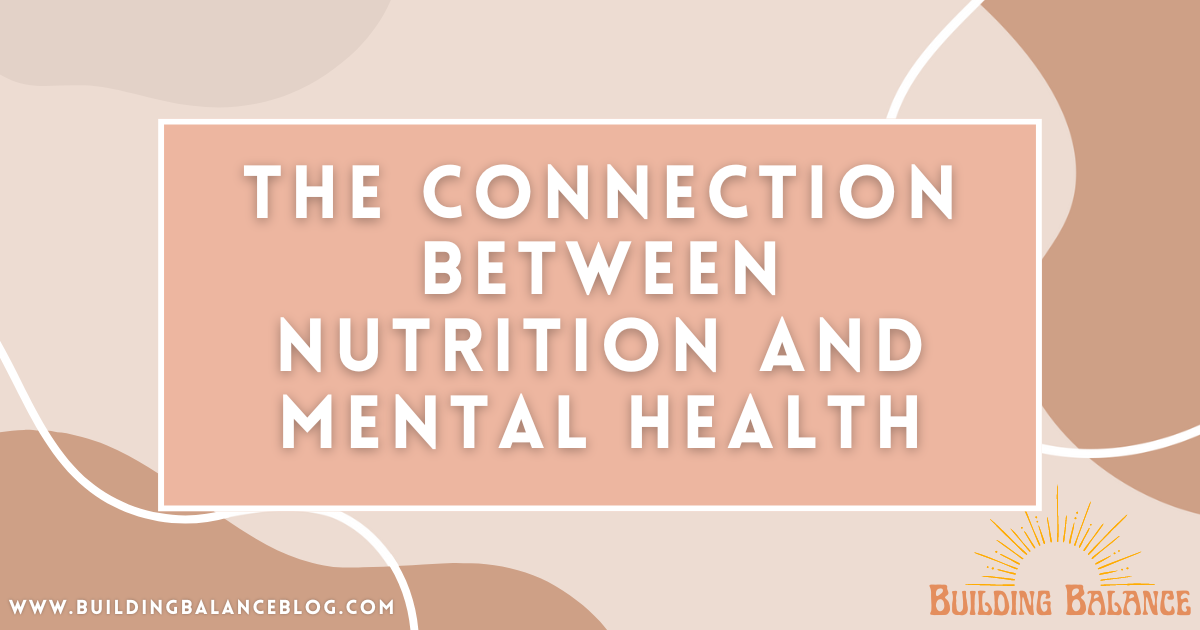
In recent years, there has been a growing recognition of the intricate relationship between nutrition and mental health. While the impact of diet on physical health is widely acknowledged, its influence on mental well-being is equally significant. Our brains, like the rest of our bodies, require specific nutrients to function optimally. By understanding the connection between what we eat and how we feel, we can make informed choices that promote both mental and physical health.
The Gut-Brain Axis: A Vital Link
One of the most fascinating aspects of the nutrition-mental health connection is the gut-brain axis. This bidirectional communication system between the gastrointestinal tract and the central nervous system means that what happens in our gut can directly affect our brain. The gut is often referred to as the “second brain” because it houses a complex network of neurons and produces many of the same neurotransmitters found in the brain, such as serotonin and dopamine.
A healthy gut microbiome, which consists of trillions of beneficial bacteria, is crucial for maintaining this gut-brain connection. A diet rich in fiber, probiotics, and prebiotics can support a balanced microbiome, thereby enhancing mental health. Foods like yogurt, kefir, sauerkraut, and other fermented products are excellent sources of probiotics, while fruits, vegetables, and whole grains provide prebiotics that feed these beneficial bacteria.
Nutrient Deficiencies and Mental Health
Deficiencies in certain nutrients can lead to or exacerbate mental health issues. For instance, low levels of omega-3 fatty acids, B vitamins, vitamin D, and minerals like magnesium and zinc have been linked to depression, anxiety, and cognitive decline.
– Omega-3 Fatty Acids: These essential fats, found in fatty fish (like salmon and mackerel), flaxseeds, and walnuts, play a crucial role in brain health. Omega-3s are involved in building cell membranes in the brain and have anti-inflammatory properties that can protect against brain aging and depression.
– B Vitamins: B vitamins, particularly B6, B9 (folate), and B12, are vital for brain function. They are involved in the synthesis of neurotransmitters like serotonin and dopamine. Leafy greens, legumes, nuts, seeds, and animal products are good sources of B vitamins.
– Vitamin D: Often called the “sunshine vitamin,” vitamin D is essential for mood regulation and brain health. While sunlight exposure is a primary source, vitamin D can also be found in fatty fish, fortified dairy products, and supplements.
– Magnesium and Zinc: These minerals are crucial for brain function and mood regulation. Magnesium-rich foods include leafy greens, nuts, seeds, and whole grains, while zinc is abundant in meat, shellfish, legumes, and seeds.
The Role of Antioxidants
Oxidative stress, caused by an imbalance between free radicals and antioxidants in the body, can damage brain cells and contribute to mental health disorders. Antioxidants, found in fruits, vegetables, nuts, and seeds, help combat oxidative stress and protect brain health. Vitamins C and E, beta-carotene, and polyphenols are potent antioxidants that support cognitive function and emotional well-being.
– Vitamin C: This antioxidant is abundant in citrus fruits, strawberries, bell peppers, and broccoli. It helps protect brain cells from oxidative damage and supports neurotransmitter function.
– Vitamin E: Found in nuts, seeds, and green leafy vegetables, vitamin E protects cell membranes from oxidative stress and may reduce the risk of cognitive decline.
– Polyphenols: These compounds, found in berries, tea, coffee, and dark chocolate, have anti-inflammatory and antioxidant properties that benefit brain health.
The Impact of Blood Sugar Levels
Fluctuations in blood sugar levels can have a profound impact on mood and mental clarity. Diets high in refined sugars and processed carbohydrates can lead to spikes and crashes in blood sugar, causing irritability, anxiety, and fatigue. On the other hand, a diet rich in complex carbohydrates, fiber, and protein can help maintain stable blood sugar levels and promote steady energy and mood.
– Complex Carbohydrates: Whole grains, legumes, fruits, and vegetables provide a steady release of glucose into the bloodstream, preventing drastic blood sugar fluctuations.
– Protein: Including protein in meals and snacks can slow the absorption of sugar and help stabilize blood sugar levels. Good sources of protein include lean meats, fish, eggs, dairy, legumes, nuts, and seeds.
Mindful Eating for Mental Health
Beyond the nutritional content of our food, the way we eat can also influence our mental health. Mindful eating, which involves paying attention to the sensory experience of eating and the body’s hunger and fullness cues, can promote a healthier relationship with food and reduce stress and anxiety around eating.
Practicing mindful eating can help individuals recognize emotional eating triggers and develop healthier coping strategies. It encourages savoring each bite, eating without distractions, and appreciating the nourishment that food provides.
Practical Tips for a Mental Health-Boosting Diet
1. Eat a Variety of Whole Foods: Focus on a diverse diet that includes plenty of fruits, vegetables, whole grains, lean proteins, and healthy fats.
2. Incorporate Omega-3 Fatty Acids: Include sources of omega-3s like fatty fish, flaxseeds, and walnuts in your diet.
3. Prioritize B Vitamins and Minerals: Consume a variety of nutrient-dense foods to ensure adequate intake of B vitamins, magnesium, and zinc.
4. Choose Antioxidant-Rich Foods: Eat a rainbow of fruits and vegetables to provide your brain with a variety of antioxidants.
5. Stabilize Blood Sugar Levels: Opt for complex carbohydrates, fiber, and protein to maintain steady blood sugar levels.
6. Practice Mindful Eating: Slow down, savor your meals, and listen to your body’s hunger and fullness cues.
7. Stay Hydrated: Dehydration can affect mood and cognitive function, so drink plenty of water throughout the day.
8. Limit Processed Foods and Sugars: Reduce your intake of refined sugars and processed foods that can negatively impact mood and energy levels.
The connection between nutrition and mental health is profound and multifaceted. By nourishing our bodies with the right foods and practicing mindful eating, we can support our mental well-being and enhance our quality of life. Remember, a healthy diet is not just about physical health; it’s also about feeding your mind and soul.

